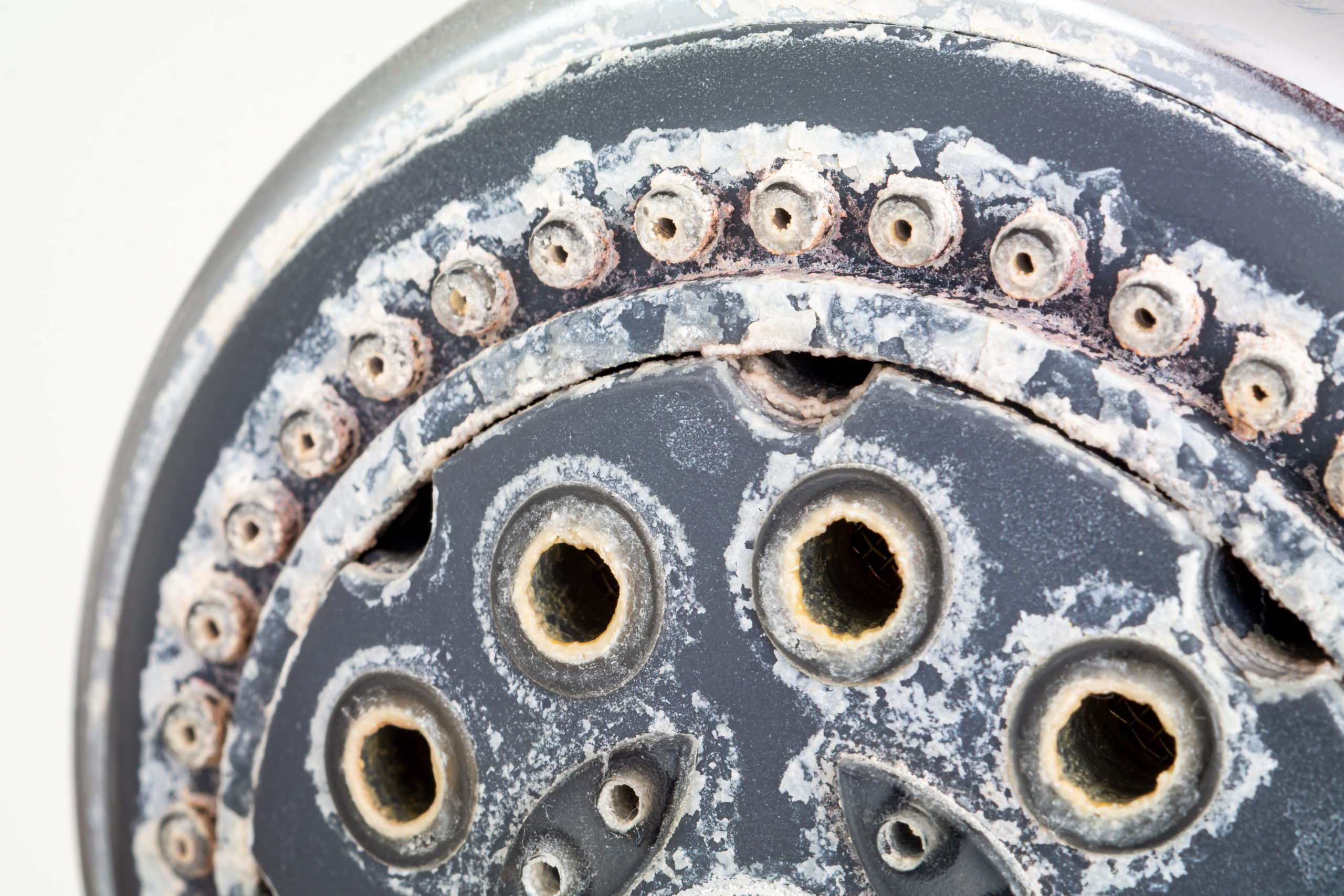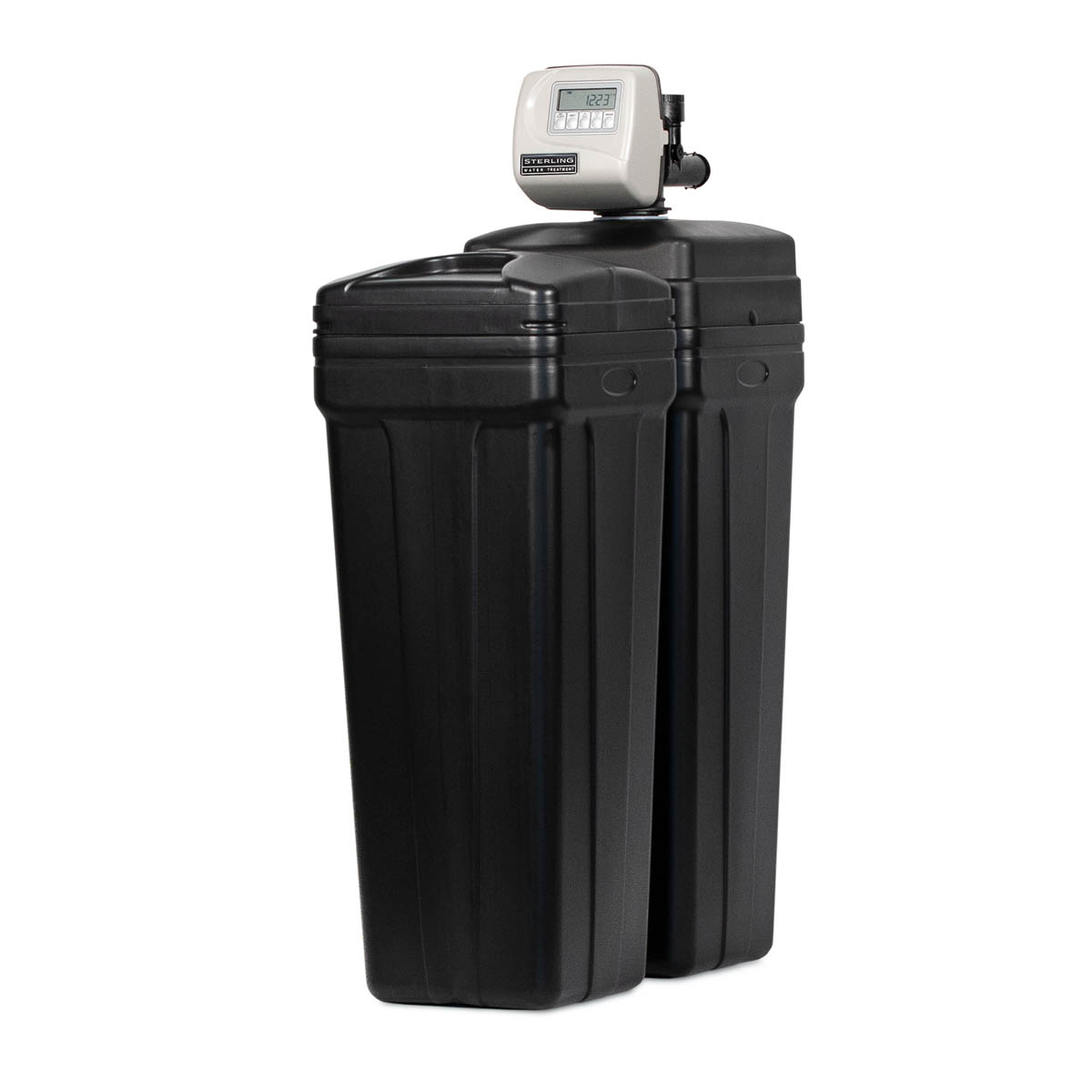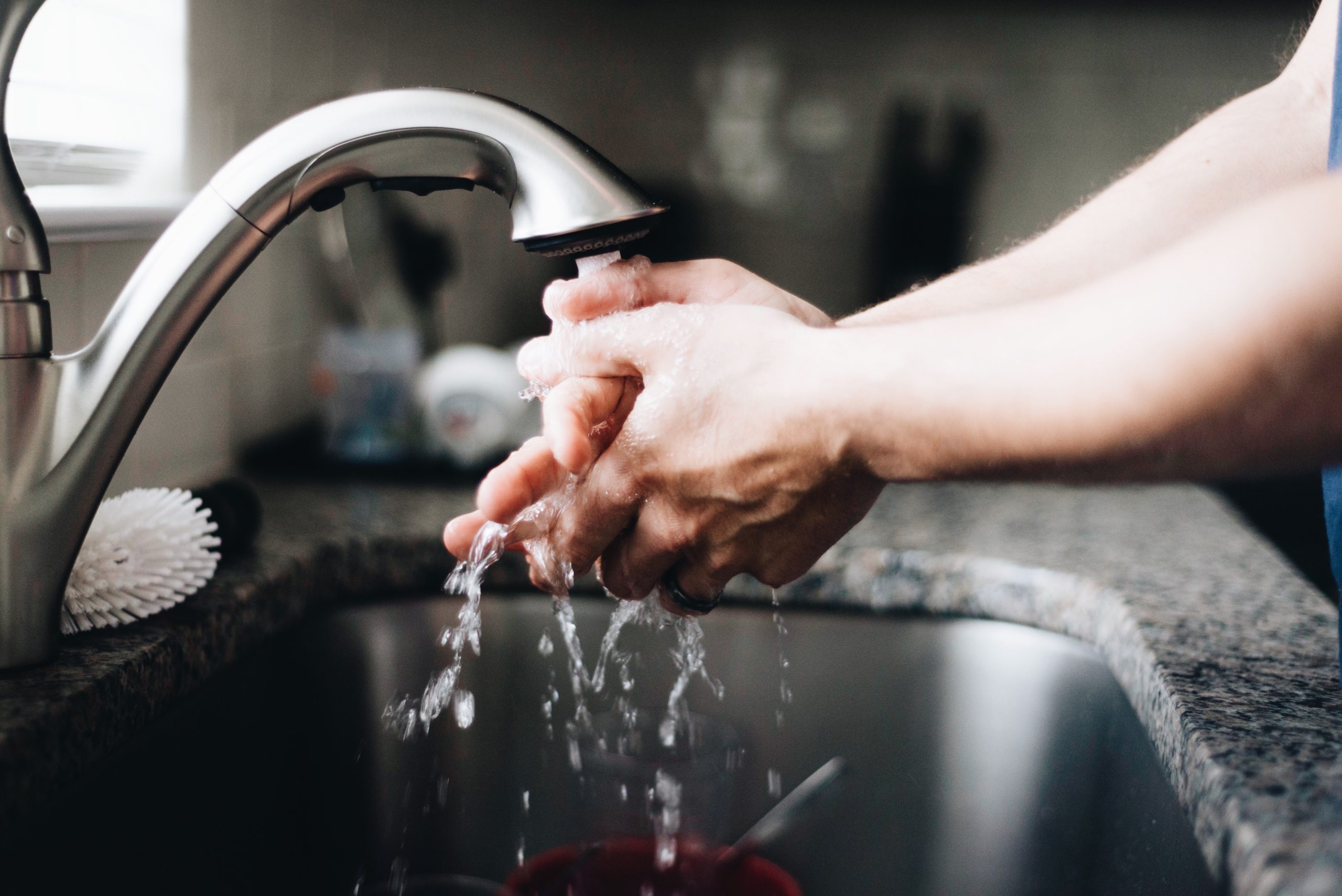Cracking, dry skin. Clogged pores and acne messing with your skincare routine. Dull, limp hair that doesn’t seem to last a few days past the salon. Sinks and showers that are far from clean and sparkling, like they once were. You’re looking at the effects of hard water! But just because you have hard water doesn’t mean you’re stuck with all the damage it causes. A water softener is just what you need to stop hard water for good and work on your best self in 2022!
Soft Water vs. Hard Water
To know if you need a water softener, you’ll need to know the difference between hard water and soft water. Hard water is water that is high in calcium and magnesium, which mineral particles make the water more or less hard depending on the presence of these minerals. Your water collects calcium and magnesium in varying degrees as it travels from its source to your tap. Hard water is not necessarily bad for you, but you’ll see the effects of hard water on yourself, your home, and your appliances. Soft water is water that is free of calcium, magnesium, and other hardness mineral particles, which have been removed by a water softener system. While both types of water may look crystal clear, they’re different in action: for example, soft water forms a healthy lather with soap on your hands, while hard water leaves a filmy feeling on your hands (due to the soap reacting with the calcium and forming soap scum). More on that later!
What if I live in the city? At least I don’t have well water! Not so fast! You can’t determine the hardness of your water automatically by it being city water or well water. Well water isn’t inherently hard and city water isn’t inherently soft! It is true that well water is likely to be hard water due to the minerals in the surrounding ground, but your city water is most likely just the same—even in the Great Lakes State!
”Michigan water is considered hard to very hard. Detroit Metro area has moderately hard water, at 104 PPM. Grand Rapids, located in the lower peninsula has hard water according to USGS standards at 380 PPM.
HydroFlow USA
At what hardness is a water softener needed? The ideal water hardness range is 0-3 GPG (grains per gallon) or 0-51 PPM (parts per million). Your water is considered moderately hard and needs a water softener if your water is between 3-7 GPG or 51-120 PPM and anything from 7-15+ GPG or 120-257+ PPM will manifest in your appliances crusted over with scale and stains. You should certainly invest in a water softener when your water’s hardness is over 15 GPG. At this point, your water is really too hard and you will see your water take its toll on your skin, hair, and even your health if you don’t get a water softener.

The calcium and magnesium in hard water build up on your appliances over time and eventually render them unusable.

How does a Water Softener Work?
A water softener works for you by removing the hardness particles in your water, specifically calcium and magnesium. (Advanced water softener systems can even remove iron and water discoloration!)
First, your water softener must be installed. These are relatively small units and can be tucked away in the basement or another convenient location! Then, your water softener gets to work: millions of negatively-charged resin beads inside the unit attract the positively-charged calcium and magnesium! Finally, only soft water with the calcium and magnesium removed exits the softener. Water softeners also go through a “regeneration” cycle, meaning that the resin beads inside are regularly cleansed of the mineral buildup that clings to them. And that’s it! Soft water can be that easy.
Are you concerned about your water quality, taste or odors? Along with Sterling water softeners, we also install whole-home filters for taste and odors and Reverse Osmosis systems! Just send us a message!
Signs That You Need a Water Softener
The most obvious and determinative factor that you need a water softener is your water test results. But if you haven’t done a water test yet, consider getting one if you notice these symptoms:
- Your laundry fades quickly in the wash or becomes stiff and scratchy. The fading and discoloration of your clothes in the laundry is actually due to the reaction of the detergent with hard water, leaving behind residue that makes your laundry appear dull (and even feel and smell different)!
- Scale and staining on your appliances and plumbing. Scale and stains are a result of mineral deposits from hard water. You may see scale in your shower heads, taps, dishwashers, and laundry machines affecting your water pressure! Scale buildup not only drastically affects your appliances, but can lead to costly repairs and even premature replacement.
- Water that smells or tastes bad. The metallic (or even dirty or moldy) taste and smell may be due to the excess minerals in your water and the scale buildup that it causes in your pipes.
- Water heater problems. The minerals in hard water accumulate and build up in your water tank and on its heating elements. Not only will hard water cause your water heater to be less efficient, it also wears down on the unit and shortens its lifespan.
- Dry skin and hair. The dryness and itchiness of your skin and scalp is actually caused by the small mineral particles that do not work well with soaps and shampoos. As a result, you notice itchiness and irritation due to clogged pores, and limp, dull hair.
- Higher utility bills. If your plumbing is clogged or covered with buildup and scale, it has to work harder to keep up. As a result, you’ll see it add up on your energy bills.
Do I Need a water softener or a water filter?
While water softeners are included under the broad category of water filter, water filters and water softeners do different things and have different goals. Water softeners target problems caused by hardness minerals like buildup on appliances, dishes, and laundry. Water filters target contaminants that cause bad smells and tastes in your water, with the goal of providing you with cleaner water.
You should consider a water filter if your main concerns are:
- The taste and smell of your drinking water.
- Potential chemical contaminants in your local water source.
- Bacteria and other microbes in your plumbing system.
How Big of a Water Softener Do I Need?
Like furnaces, air conditioning units, and water heaters, water softeners come in different sizes to suit your needs. To figure out the right size water softener for your home, simply calculate:
# of people in home x gallons of water they use per day
To continue your calculation, you’ll need the results from a hard water test. After figuring out your daily water usage, multiply:
Daily water usage x grains of hardness in your water
This final number is what you’ll need when you’re shopping for a water softener that is just right for your family. Contact local water quality experts at Blakeslee and Son for the perfect softener for your home!

Can a water softener save your water heater?
It’s no surprise that a water softener is able to extend the life of your water-using appliances, one of the biggest being your water heater. One of the top reasons for water heater failure is actually corrosion inside the tank and on the heating elements due to limescale buildup! Hard water buildup can also decrease its efficiency and corrode the components inside. Be rid of this problem for good with a water softener!
Considering the switch to a tankless water heater? A water softener is a great idea to protect your investment. (We recommend water softener installation with all tankless water heaters we install!) Like traditional tank heaters, tankless systems are susceptible to hard water buildup—it causes the same efficiency issues, corrosion, and scale buildup on the heat exchanger. When the hardness minerals are removed from your water however, you’ll find your tankless water heater much easier to maintain. You won’t need to flush it with a descaling solution in your yearly maintenance!
At Blakeslee and Son, we’ll install your water softener at the same time as your tankless or tank water heater! Send us a message today for a rapid quote on this package deal!
If you are noticing that your water is emitting a strange smell, read our blog pertaining to reasons why your water is tasting and smelling badly.


